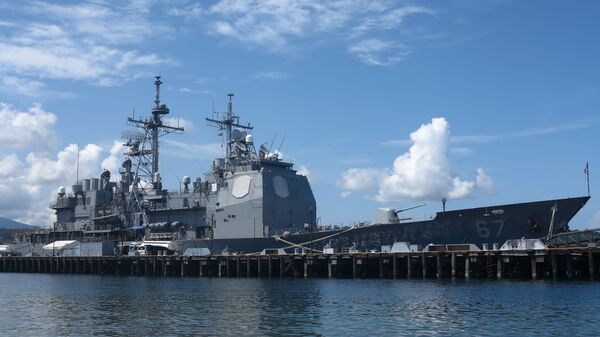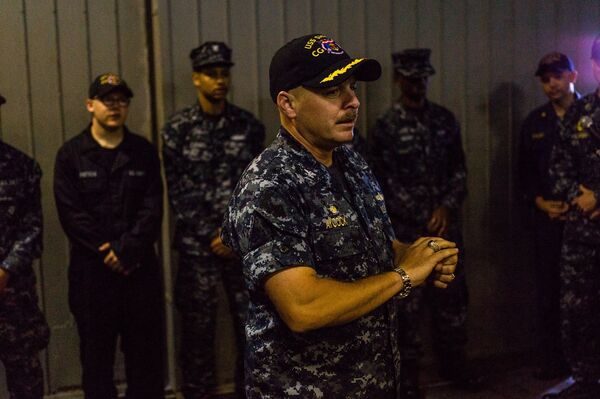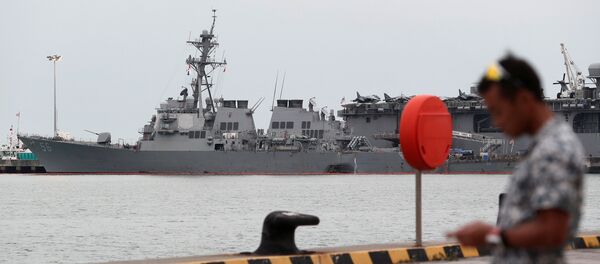One of the sailors referred to the military vessel as a "floating prison," while another one warned that "it’s only a matter of time before something horrible happens", according to the three surveys, which have been conducted among the sailors of USS Shiloh during the 26-month command of Capt. Adam M. Aycock’s, who rotated out as scheduled in a standard change-of-command ceremony on August 30.
The warship, which is based at the US Navy base in Yokosuka, Japan, is part of the 7th Fleet’s West Pacific mission to deter North Korea. The comments however reveal that the sailors doubt it could fulfill its tasks.
"I just pray we never have to shoot down a missile from North Korea," one of the servicemen said, "because then our ineffectiveness will really show."
Many of the comments were specifically about former Commanding Officer (CO) Capt. Adam M. Aycock, who "was widely feared among sailors, who said minor on-the-job mistakes often led to time in the brig, where they would be fed only bread and water," the outlet says.
"These comments are not unique. Each survey runs hundreds of pages, with crew members writing anonymously of dysfunction from the top, suicidal thoughts, exhaustion, despair and concern that the Shiloh was being pushed underway while vital repairs remained incomplete," it acknowledges.
The US Navy's morale problems have come into focus following the at-sea collision of the USS John S.McCain guided missile destroyer with a merchant ship near Singapore in August that killed 17 sailors.
The Shiloh belongs to the same chain of command of the US Navy in Asia, which has recently seen a major leadership shake up. Aycock however was not fired.
The USS Shiloh got into the spotlight this summer, when one of its sailors, Peter Mims, went missing. The vessel launched a 50-hour search involving ships, aircraft and a carrier, presumably thinking that he went overboard. The sailor, however, was finally found aboard ship. The reasons for his behavior have not been disclosed.
US Navy officials acknowledged to the website that "Aycock’s superiors at Task Force 70 were aware of problems after the first negative survey, taken two months into his command."
Aycock declined to comment for this story through a spokesperson at the Naval War College, where he now works as a researcher with the Institute for Future Warfare Studies.





